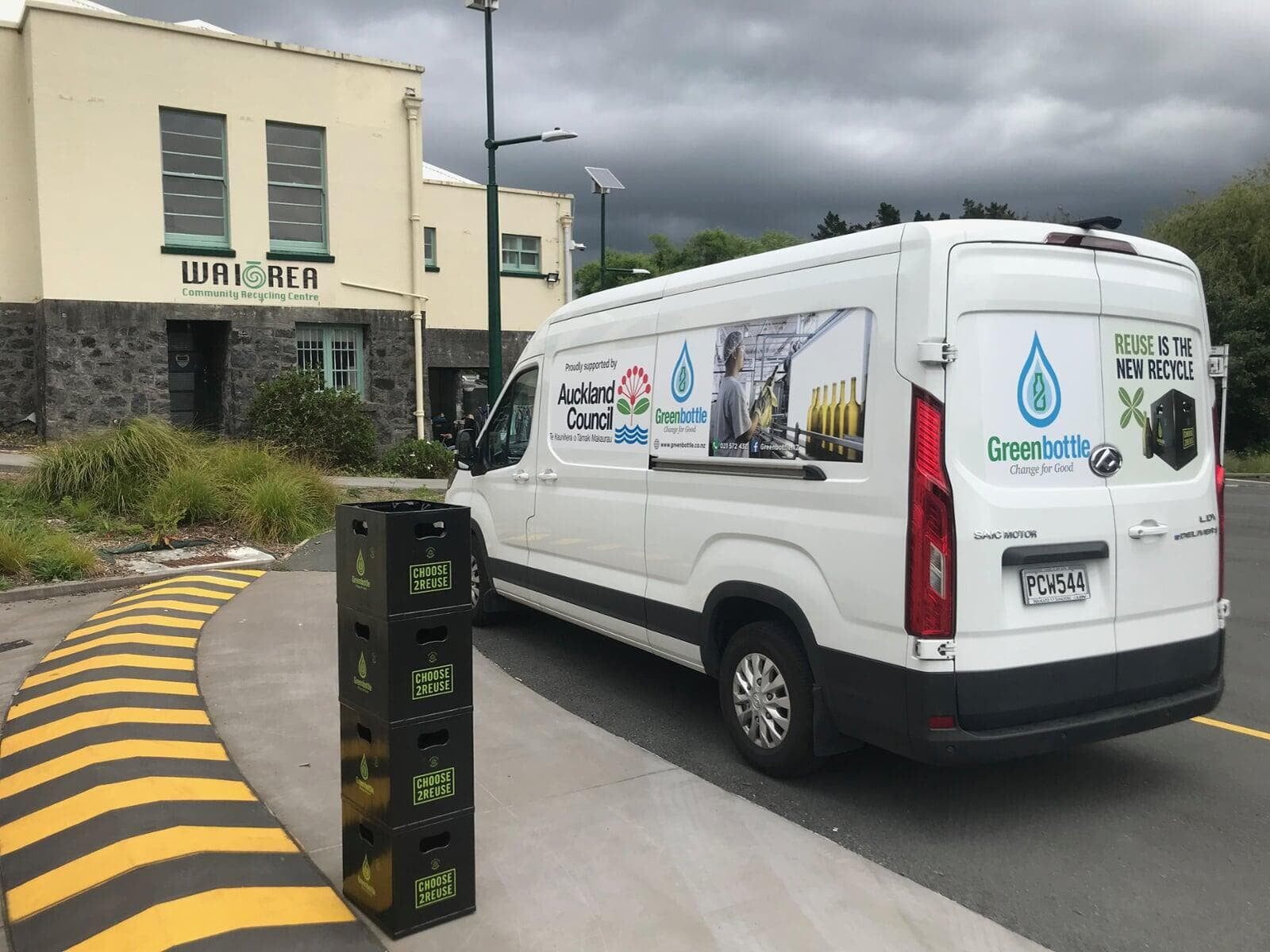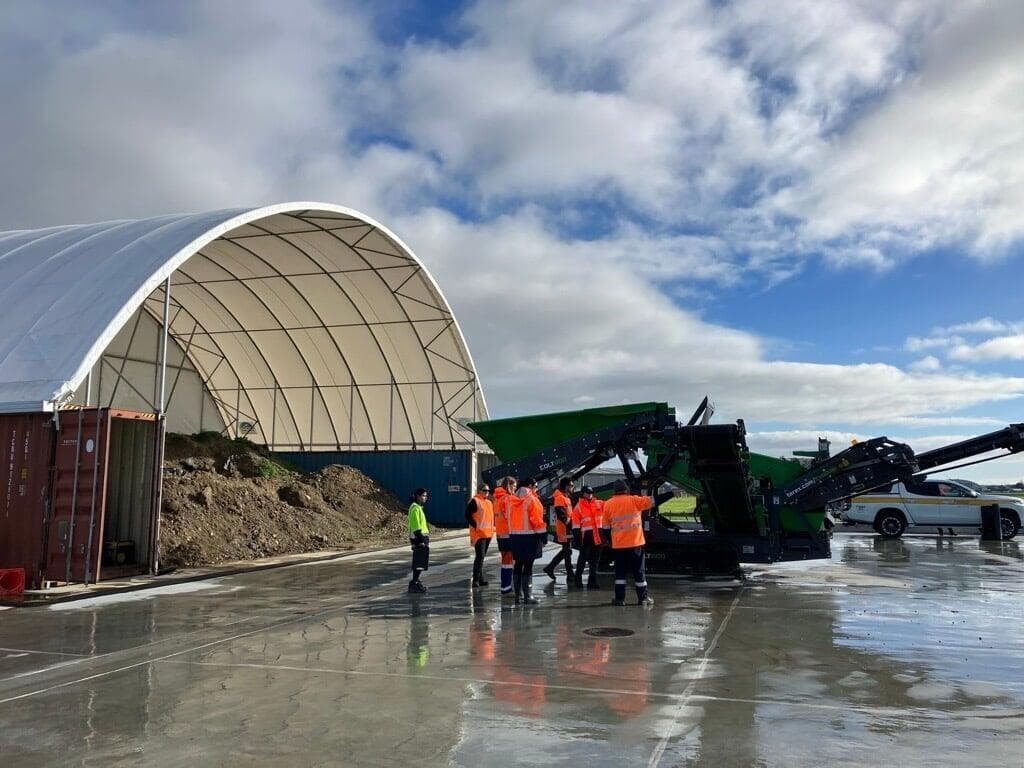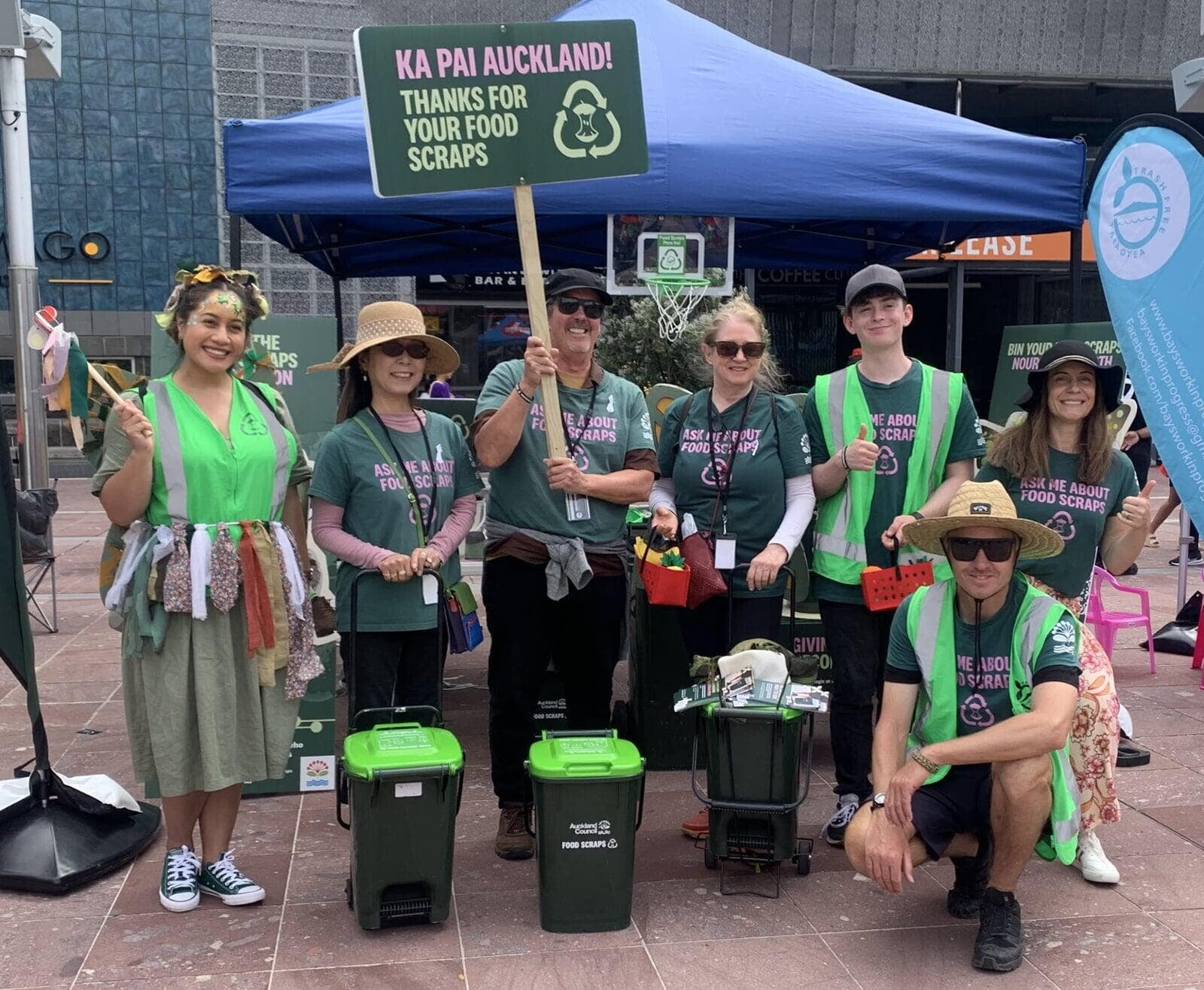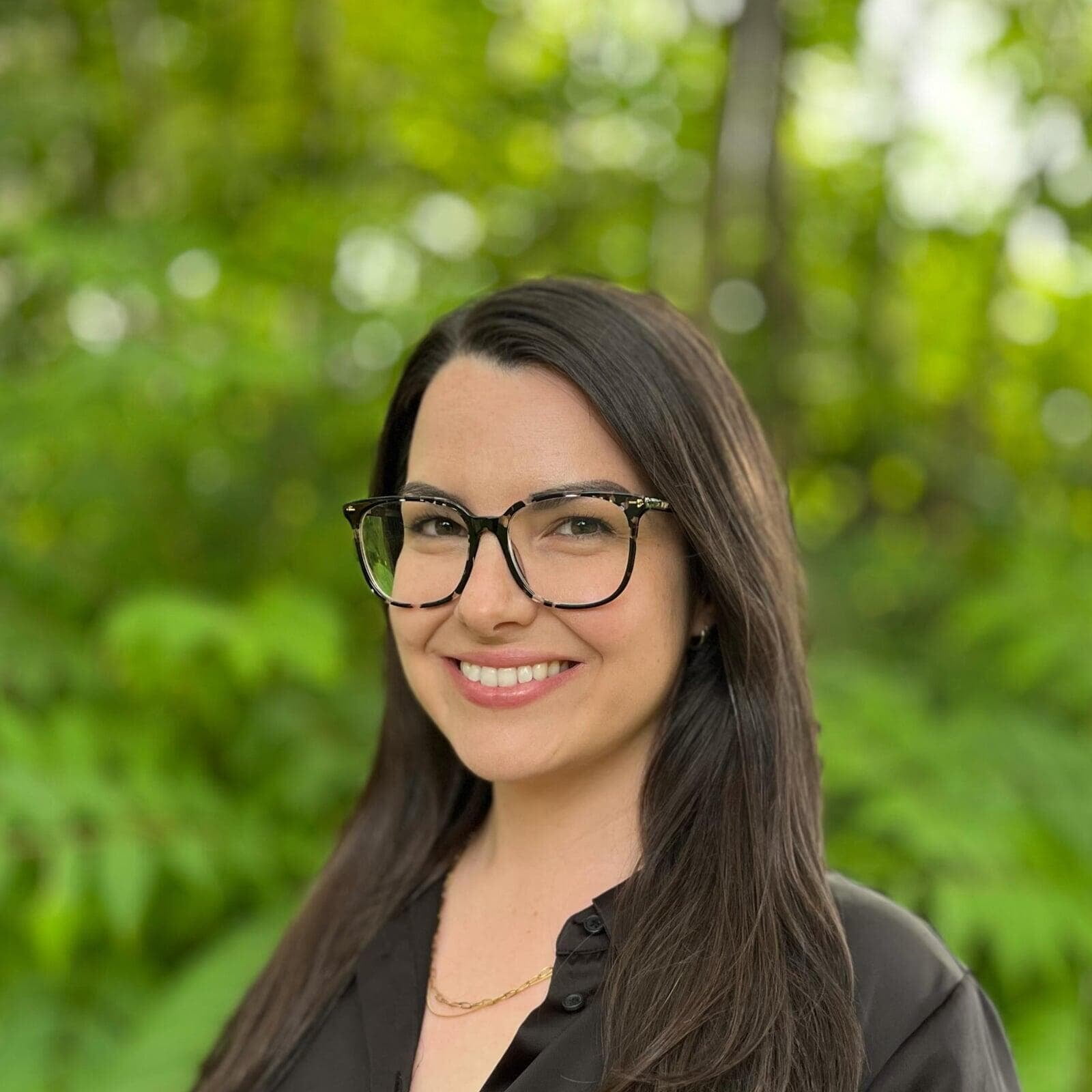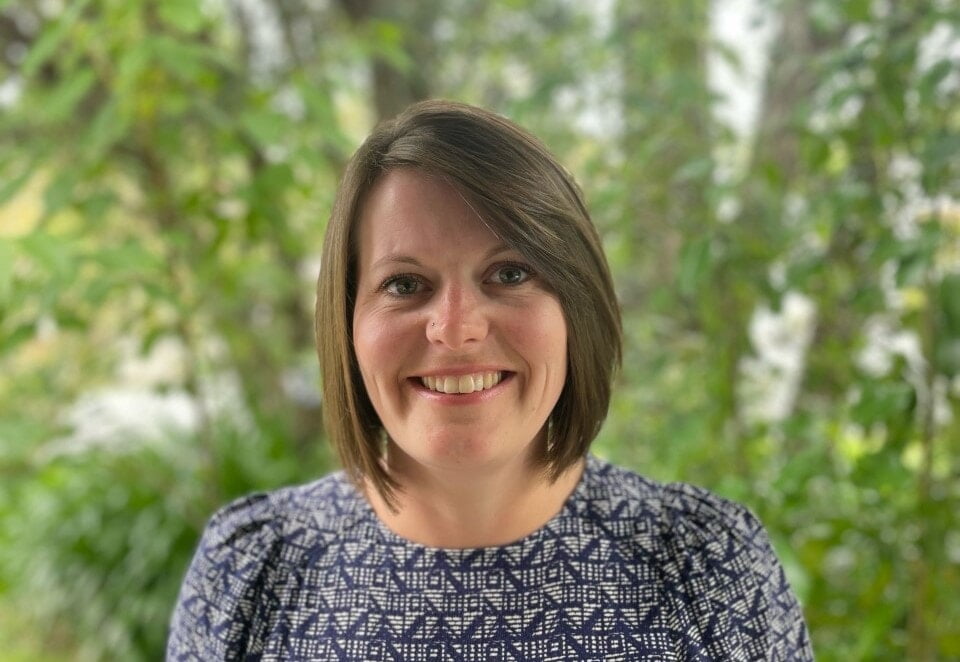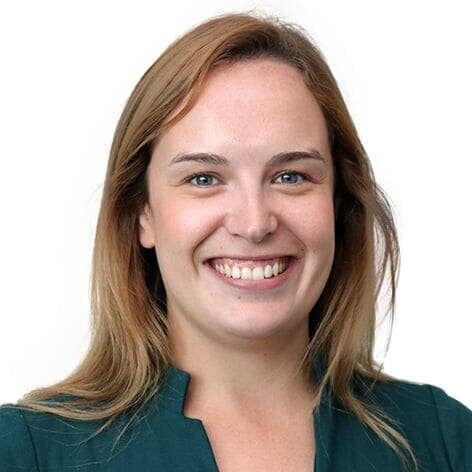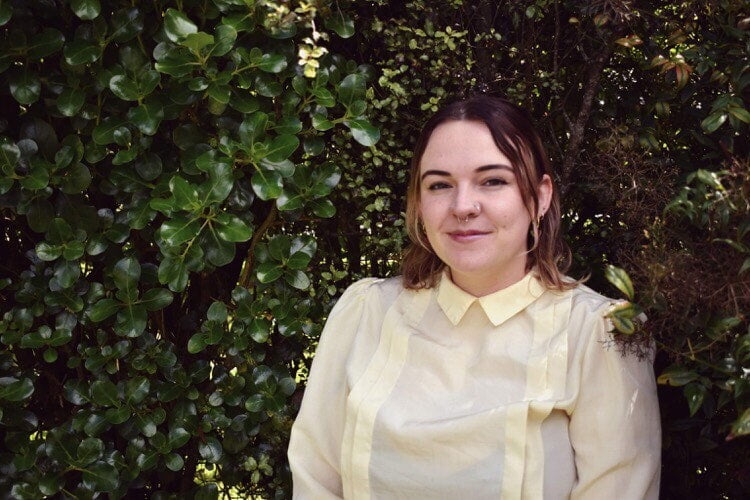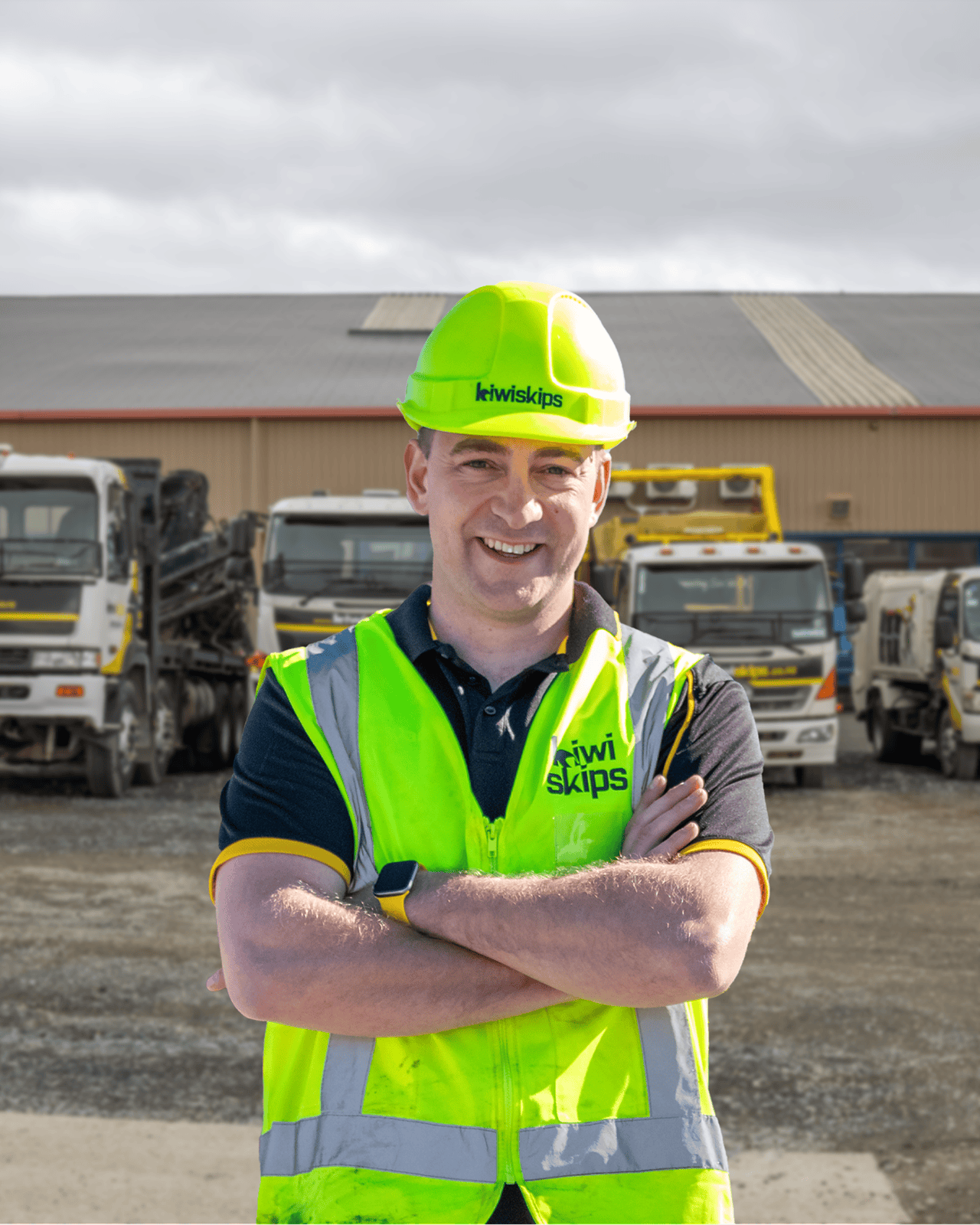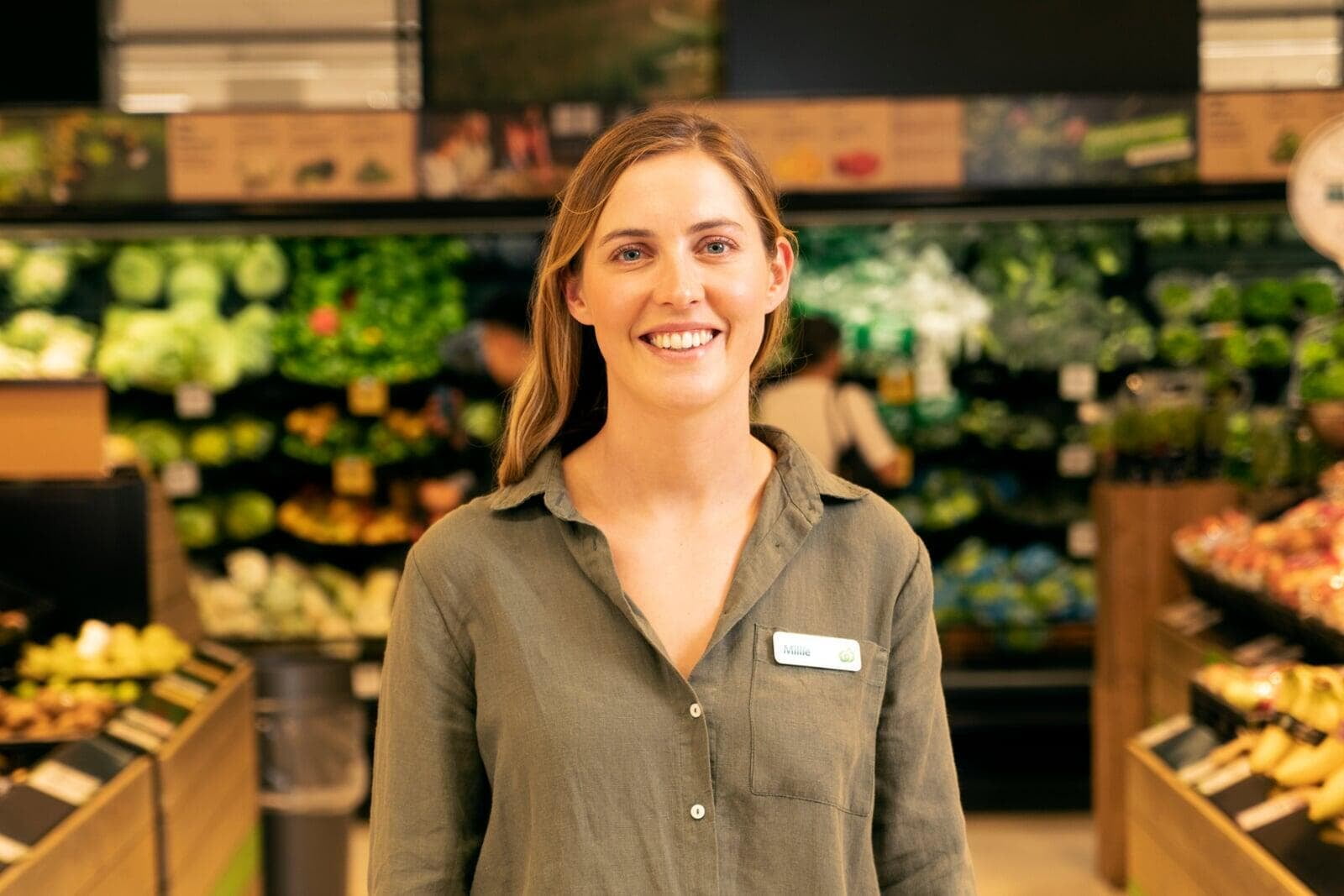The WasteMINZ Awards for Excellence recognise the industry superstars who have been part of an amazing initiative or project over the past 12 months.
Thank you to everyone who has sent in a nomination!
Our judges found their jobs very challenging this year - the innovation, creativity, and passion evidenced in all the nominations this year meant it was difficult for them to mark!
The Awards for Excellence ceremony will be held on 28 May as part of our Conference 2024.
Congratulations to all of our finalists:
Hamilton City Council, Go Eco Waikato, Hospice Waikato, Op Shop for Breast Cancer - Thrifty Threads |
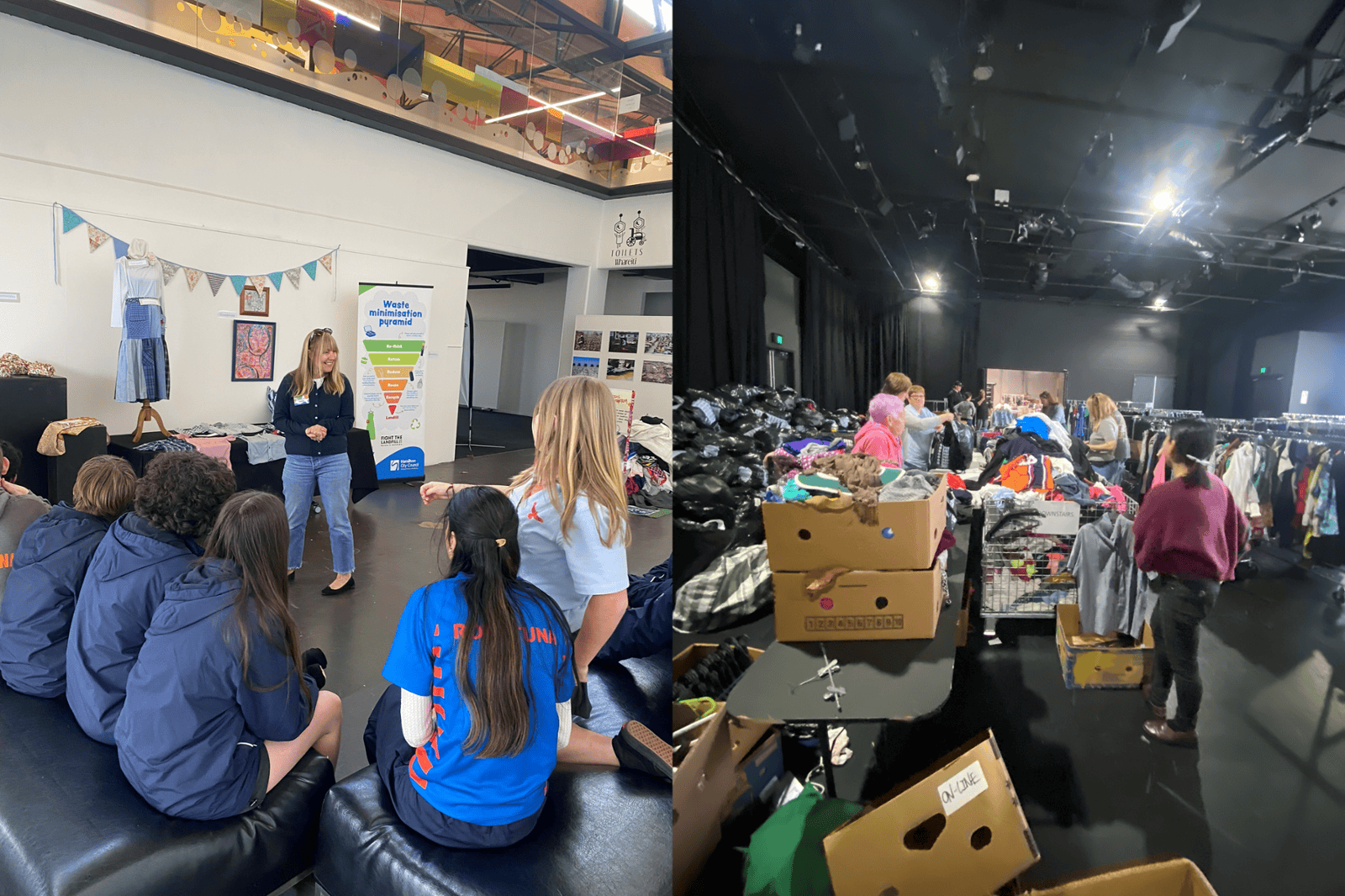 A collaborative group of charity shops, along with Hamilton City Council, diverted 12,000kg of clothing from entering landfill, and raised $20,000 for charity. Hamilton City Council collaborated with Hospice Waikato, Op Shop for Breast Cancer, and environmental charity GoEco to deliver a three-day public pop-up op shop. The catalyst for this event was Hospice asking for help to save two 40ft containers of clothing – donated during the pandemic – from going to landfill. The event also educated the community. In the lead-up to the event the team shared tips for waste reduction, and at the event, workshops were held on clothing upcycling and capsule wardrobes made with second-hand clothes to demonstrate how you can put together great outfits from just a few pieces. The council also partnered with two local schools to run workshops about waste minimisation, with participating students having their work displayed at the event. What sets this initiative apart is the importance placed on behaviour change and education. As shoppers exited the venue, there was a gallery that highlighted the effects of fast fashion on the environment, including a visual display of how much clothing the average kiwi sends to landfill every year. To arm Hamiltonians with the right information to help with their clothing consumption, the team had stalls showing how to minimise clothing waste and shared information on the waste reduction hierarchy to further this understanding. The event was funded via a Waste Minimisation Levy, and all proceeds went directly to charity. |
Tauranga City Council - Resource Wise Programme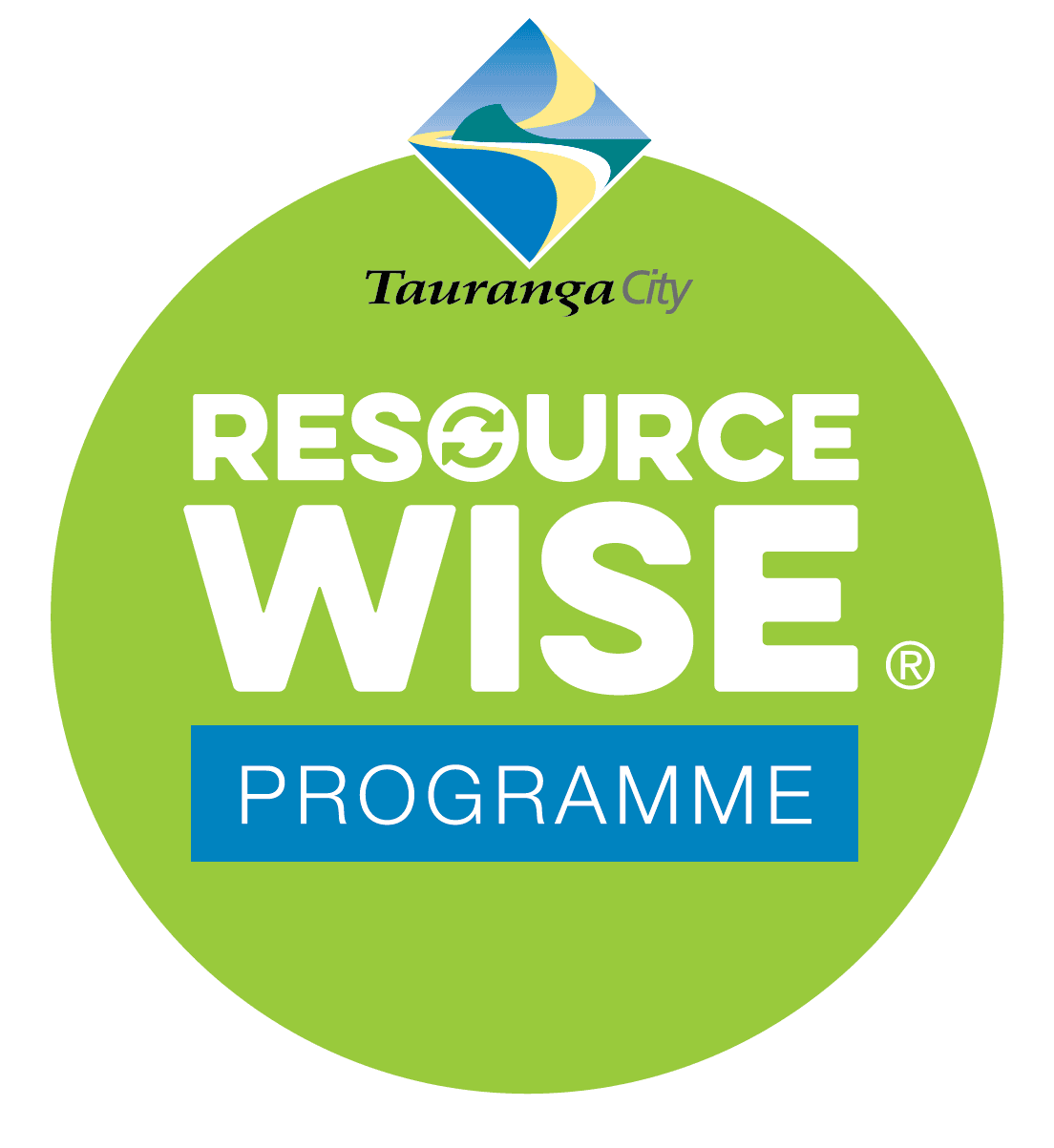 Nearly half of Tauranga’s household waste generated ends up in landfill. This isn’t sustainable for our environment or future generations and a large-scale shift towards more sustainable behaviours is needed by the community. That’s why Tauranga City Council developed personalised and sustainable waste behaviour education and coaching via its Resource Wise Programme. This is the first council-led waste education in New Zealand for schools and businesses that features a quantifiable waste audit component, personalised reports and education, plus 1:1 support and coaching from a dedicated council Waste Officer. No two schools or businesses are the same, so the programme enables businesses and schools to quantitatively measure their current best opportunities to reduce their waste, set targets and track their progress and ultimate success through the ‘waste audit’. This, combined with personalised education and practical tools (workshops, comprehensive reports, education materials), sets the programme apart from other waste education initiatives. Since first launching the programme, the team has also encompassed circular economy principles and strengthened education around reducing waste overall, rather than focusing on only diversion. To date, programme participants have collectively diverted 1118.9 tonnes or 60% of their collective total waste from landfill. |
| Waitaki Resource Recovery Park The Waitaki Resource Recovery Park (WRRP) is an innovative and community-driven facility that offers a wide range of social benefits to the Waitaki community. WRRP's primary focus is on diverting waste from landfills and promoting sustainable practices, which in turn leads to positive social outcomes. If it can be recycled, they take it, including the hard to recycle products that would otherwise end up in landfill. As a result, WRRP has achieved an impressive diversion rate of 87-93%. WRRP also provides work skills training, literacy programmes and waste minimisation education to the Waitaki District. WRRP has had over 1000 unemployed folk pass through the organisation where skills have been taught, confidence has been raised and employability has been increased. WRRP has expanded its recycling services since it started, including successfully implementing a Tetra Pak recycling programme, which has increased the overall sustainability of waste management in their community. Overall, WRRT's innovative initiatives in waste reduction, community engagement, and pioneering recycling efforts have made significant contributions not only to their local community but also to broader waste management practices in New Zealand. Their dedication to recycling materials and people demonstrates a holistic approach to sustainability and social responsibility. |
Auckland Council - Drink Different
A trial designed get people thinking differently about the choices we make when buying beverages
Launched on ‘Re-Use Wednesday’ of ‘Recycling Week 2023’, the ‘Drink Different’ campaign and trial was designed to get people thinking differently about the choices we make when buying beverages, and how we could influence beverage manufacturers to make smarter packaging choices even without extended producer responsibility (EPR) and a government-legislated container return scheme (CRS).
Auckland Council partnered with reuse start up Green Bottle and the newly opened Waiōrea Community Recycling Centre to conduct a trial (physical return and online survey) to gauge consumer preferences around offering more circular, refillable packaging for NZ made beverages. Further support was provided by Liquorland, Barkers of Geraldine, Good Buzz Kombucha, Sawmill Brewery and Chia Sisters.
Results were very positive; 91% of participants signalled a desire for change. This first attempt at reintroducing wide scale reuse of containers at scale across NZ provides a strong platform for businesses to move ahead and support the uptake of refillable beverage packaging. |
Localised Limited, Zero Waste Network - Auckland's Zero Waste Hubs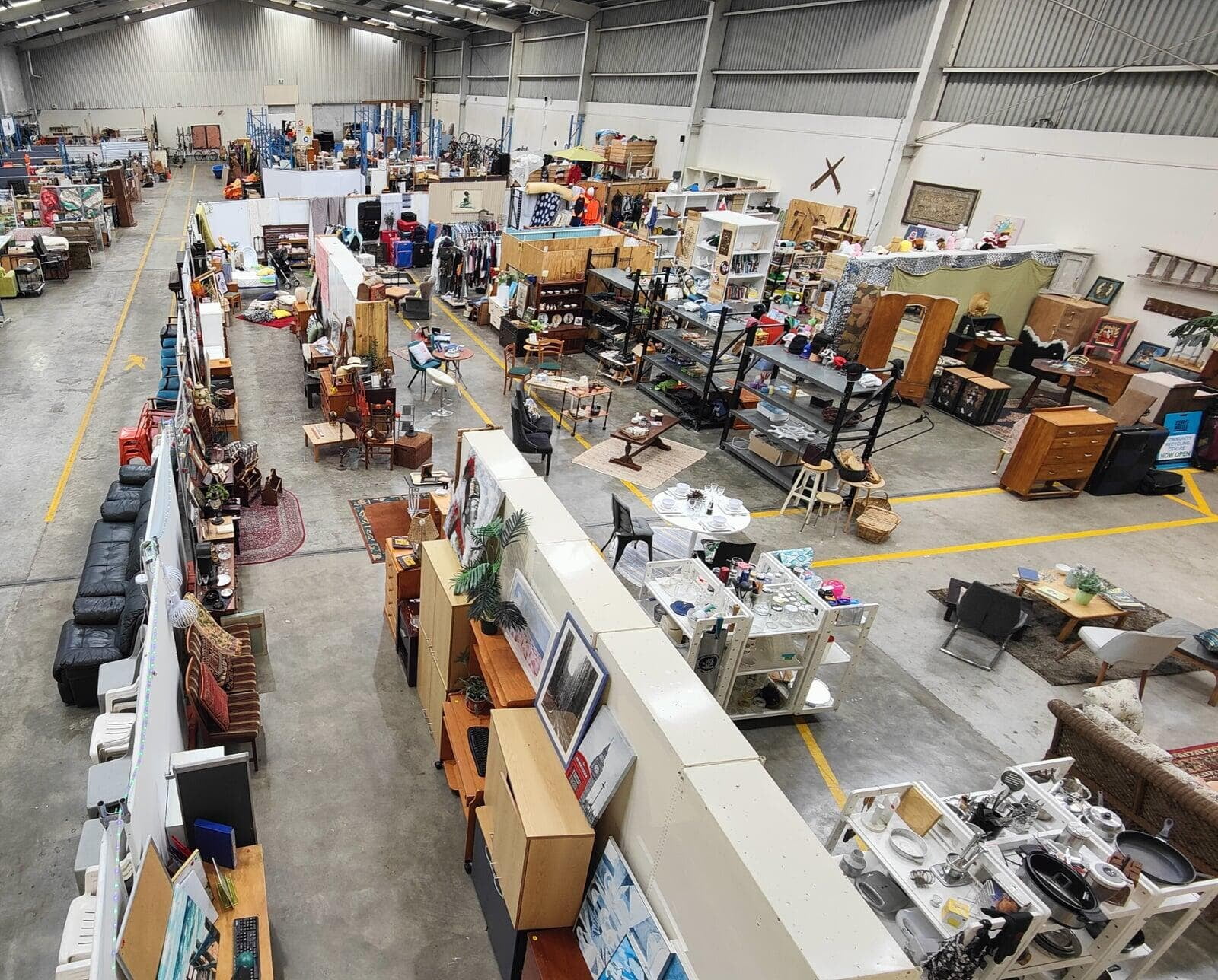 Auckland’s two Zero Waste Hubs, Hubs based in Tāmaki Glen Innes and Wairau Valley, promote innovative ways of delivering reuse and repair services, including the inorganics reuse service, community recycling centres, repair workshops, retail spaces, and community activation initiatives. 207 community groups, charities, and upcyclers are supported and have access to reusable material free of charge. The value of this material in potential revenue and in-kind donations is more than $250,000 to date and provides significant employment and volunteering opportunities. With a diversion rate of 98.5% the hubs have a vibrant feel that are constantly changing to meet community demands. The 2023 flood relief response highlighted the importance of the zero waste hubs to support emergency management and community initiatives. The hubs helped to provide clothing, bedding and furniture to those in need in partnership with marae, community organisations, government agencies and Auckland Council. |
Repost, Hawkes Bay Regional Council - Taskforce to recycle CCA treated timber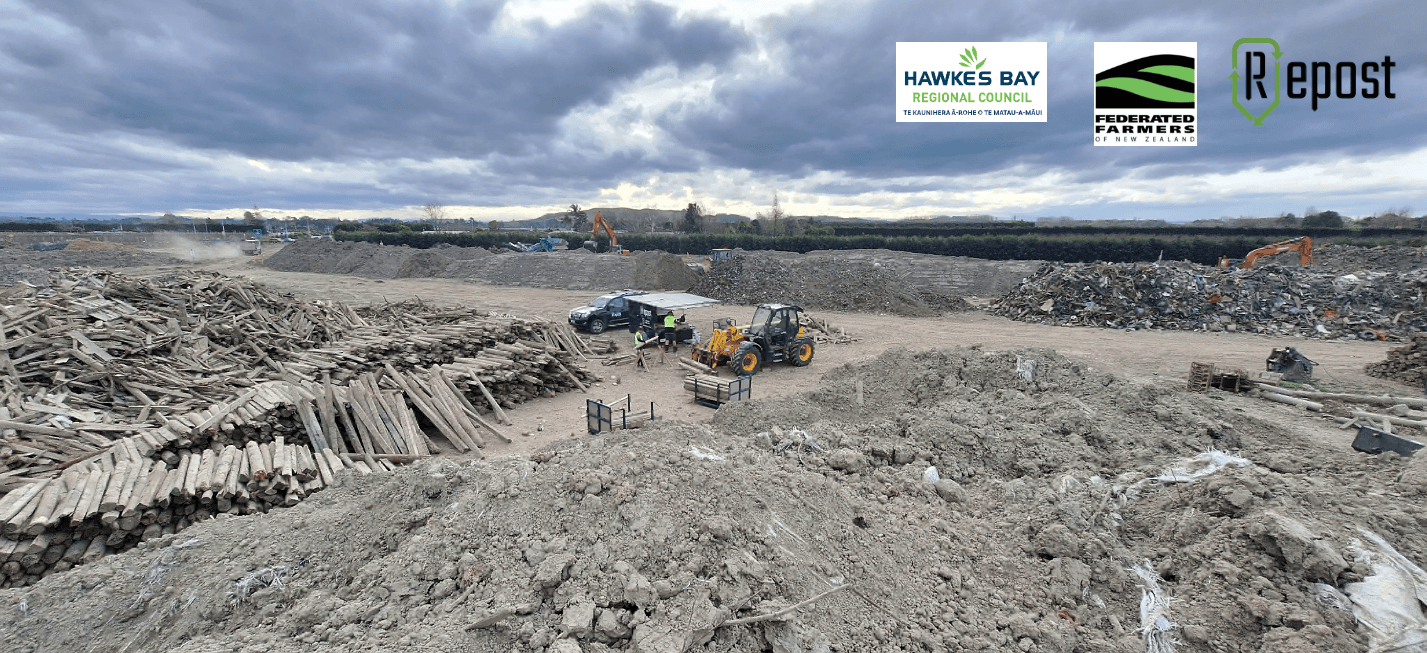 After Cyclone Gabrielle occurred, the Hawkes Bay Council Silt recovery taskforce was created and sought out sustainable recycling waste solutions and businesses to minimise waste to landfill. Repost, a company which recycles CCA-treated timber posts, was brought on to help, as 1000's of kilometres of vineyard and orchards had piles of mixed debris which needed innovative thinking to deal with! Once stockpiles of these posts were repurposed and recycled, the Farmy Army helped to direct the posts back into the community that needed it to rebuild fence lines. Over 15,000 posts have been donated, amounting to 300 tonnes by the end of January, with this number growing as work continues. This team has proved how after large weather events, Council, advocacy groups and private waste organisations can collaborate for the greater good of helping reduce waste to landfill and help in rebuilding vital fence repairs. |
Auckland Council & Community Resource Recovery Network The Auckland Council and Community Resource Recovery Network (ACCRRN) is an example of innovative partnership working. Since adopting a Resource Recovery Network Strategy in 2014, the Council has established 14 Community Recovery Centres (CRC). Through social procurement all sites are operated by community enterprises. The sites focus on reuse, recycling, and resource recovery and deliver diversion rates of 60%+ whilst creating 100+ FTE jobs. The sites also support the local economy, and 100s more jobs have been created through supporting community groups and suppliers. In 2021 ACCRRN was established to formalise the relationship between the parties as a way ensuring the CRCs thrive and for developing a governance model for the future. ACCRRN has proved very successful and could be replicated across the Country. A national Resource Recovery Network could address many of the waste issues Aotearoa is currently experiencing. |
| Helensville Zero Waste Since opening nine years ago, Helensville Community Recycling Centre has become a vital hub in the Helensville community. The facility is the second of Auckland’s 13 Community Recycling Centres (collectively called the Resource Recovery Network) to open, providing full waste and recycling services for the township’s 3000 residents. The facility is operated by Helensville Zero Waste, with Manager Treena Gowthorpe the driving force behind its success. She is a passionate zero waste advocate, ensuring that as much material as possible is recovered and put to its highest and best use - and that locals benefit from the revenue generated. Fifteen paid positions have been created and an amazing 77% of material entering the site is being diverted from landfill into the circular economy. Construction and demolition waste is a growing focus with an entire house being deconstructed on site in 2018 and plans underway to accept reusable material from Auckland flood/cyclone damaged houses for reuse to avoid it being sent to landfill. |
Repost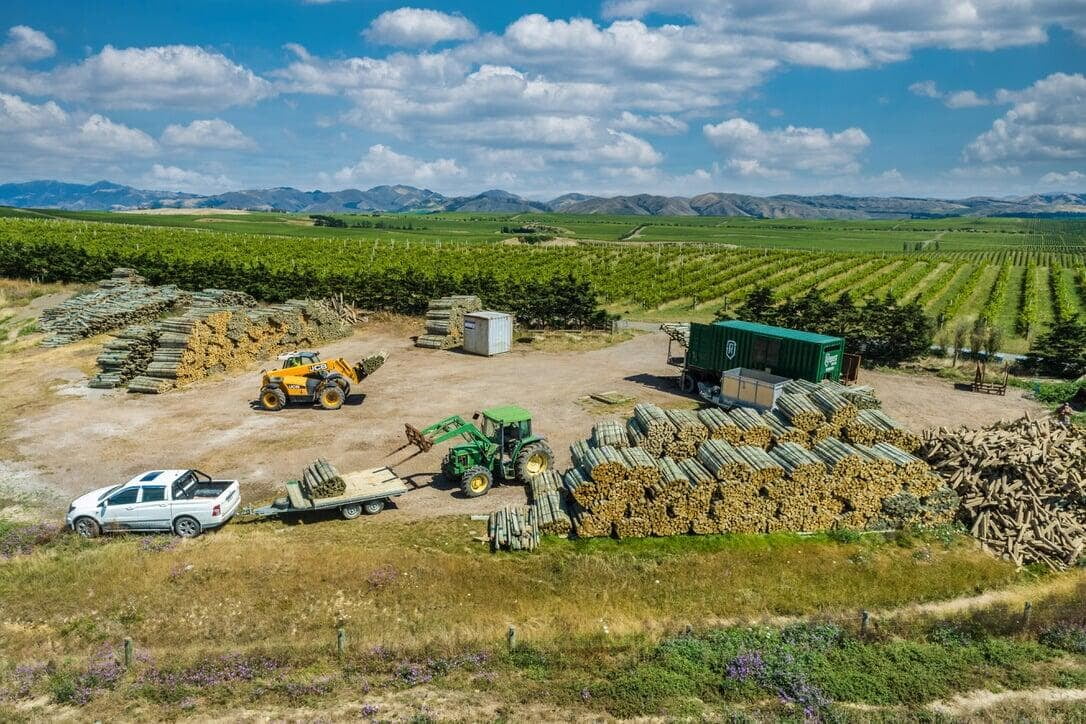 Repost is a sustainable solution for reducing treated timber posts sent to landfill, and providing cost-effective posts to farmers. A win-win! Annually, the viticulture industry sends around 1 million CCA treated timber posts to landfill. Repost's solution efficiently repurposes and re-sells them direct to farmers for a second life cycle. In late 2020 Greg Coppell, a sheep and beef farmer from Nelson Lakes, designed and built a hydraulic nail puller which enables efficient removal of the 14 plastic clips/metal nails embedded in broken viticulture posts. This resulted in a complete shift in how the viticulture industry deals with its CCA-treated timber waste, with over 550,000 posts since saved from landfill - allowing for farmers to fence over 5740km of fence lines. Repost is now also having conversations with large orchards and wineries in the Bay of Plenty and Otago, and are investigating moving into battens and recycling other forms of CCA-treated timber, with opportunities for this solution into the construction sector. This innovative initiative has contributed to economic sustainability through resource recovery as it has taken a waste product and given it value for a second life cycle for farmers, saving it from clogging up landfills. |
DEI Alliance, PDP - Base Ōhakea managed fill An innovative onsite solution for PFAS impacted spoil allows the Defence Force to continue constructing critical infrastructure, while also reducing the PFAS source areas and mass that can leach to surface water and groundwater improving environmental outcomes.
Soil in parts of Base Ōhakea have been impacted by per- and poly-fluoroalkyl substances (PFAS) from legacy use of firefighting foam. Previously, PFAS impacted spoil generated from construction projects at Base Ōhakea had been disposed of off-site. However, largely driven by concerns regarding PFAS in leachate, landfills ceased accepting soil with detectable PFAS concentrations.
This is the first purpose-built facility and project of this scale (consented for up to 45,000m3) for PFAS impacted material in New Zealand. The initiative has the following positive effects: • The treated soil will reduce the potential PFAS mass to groundwater • The soil will be retained within the rohe • Less heavy vehicle movements and associated emissions • The large area available, allows the material to be placed without significantly altering the existing ground level or adversely affecting overland flow paths meaning it can be returned pasture at completion • Enabling the construction of upgraded facilities and utilities providing improved living and working environments for service men and women |
Hawke's Bay Regional Council, Hastings District Council, supported by numerous contractors and consultants - Cyclone Gabrielle Silt, Wood and Waste Recovery Taskforce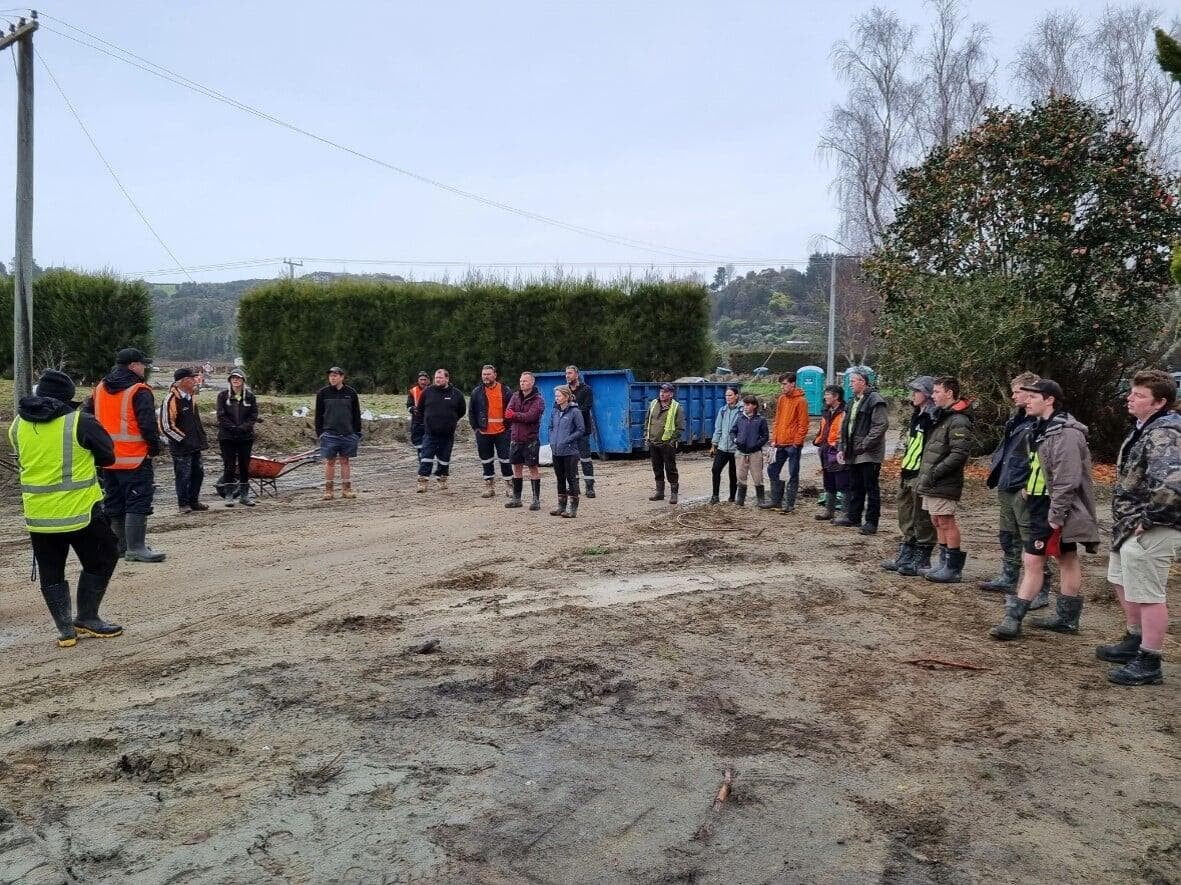 The Silt, Wood and Waste Recovery Taskforce, a joint Hawke's Bay Regional Council and Hastings District Council initiative, was established in April 2023. It operates as a service model where cyclone affected landowners log a ticket and the Taskforce (which includes a number of contractors and consultants) collects, transports and manages the flood-derived materials at a network of temporary processing and permanent disposal sites. Along with assisting landowners to reinstate their (predominantly primary production) properties, a priority for the Taskforce from the start has been segregation of waste materials, diversion from landfill and re-use/recycling as much as possible. To date, approximately 2.6 million tonnes of flood waste has been removed from more than 800 affected properties. While its core role is waste collection and management, the Taskforce has shown to be so much more than that - championing community clean-up days, providing regular educational video updates to the public, relentless dedication to lobbying for ongoing funding, and leading from the front by demonstrating to the community that even in a disaster scenario, it's still entirely possible to take a responsible and sustainable approach to waste management. |
New Zealand Defence Force, Tonkin + Taylor - Waiouru Landfill Design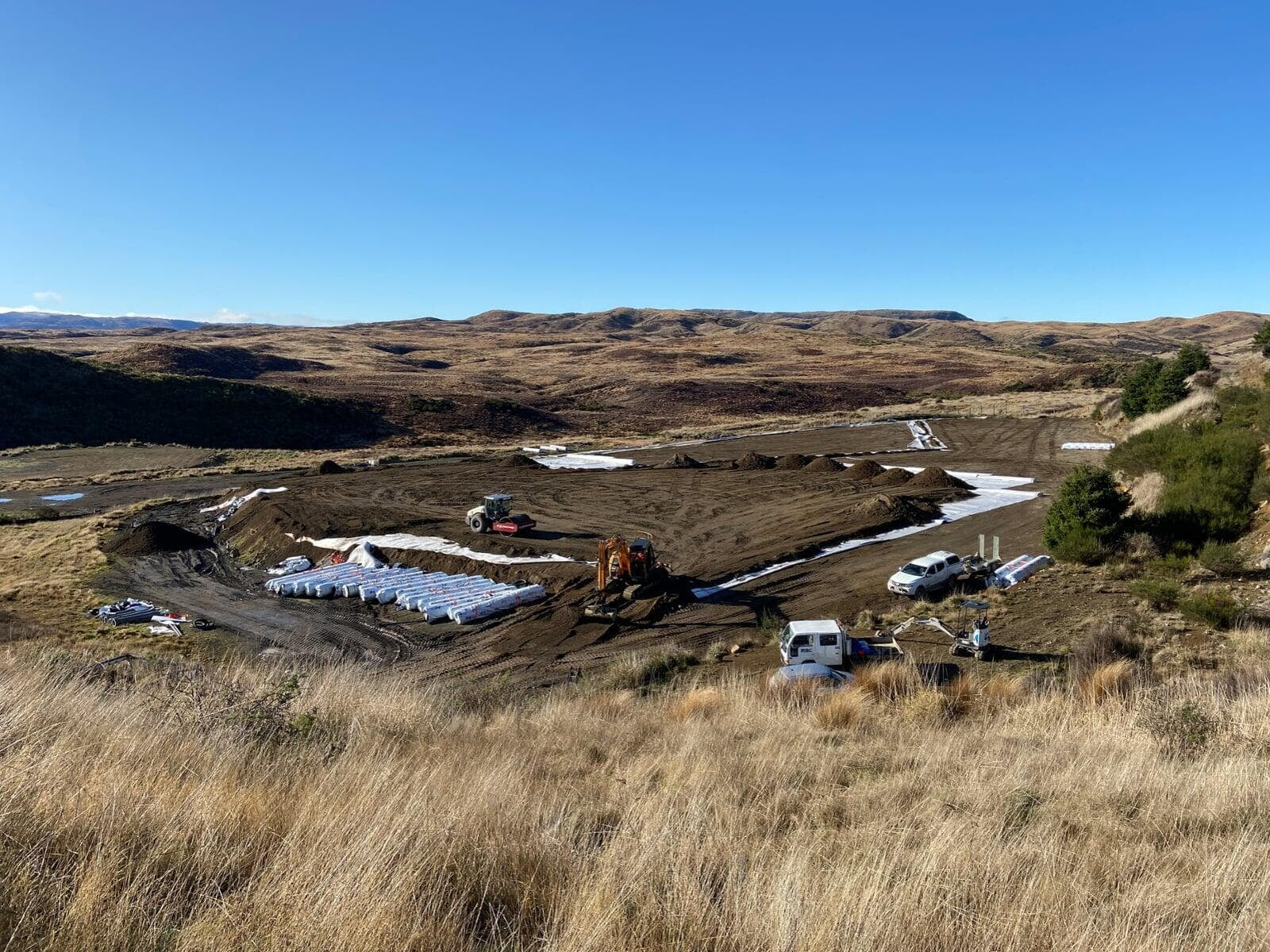 Waiouru has been an army training base for mountainous and alpine desert conditions since World War II. The base has a landfill site that required decommissioning, so the New Zealand Defence Force engaged Tonkin & Taylor to assist with the landfill closure plan. Waiouru’s remote location in an inhospitable environment, close to a sensitive stream, posed a unique set of problems for the team tasked with the challenge of capping the landfill. To provide a more environmentally sympathetic option, rather than a traditional capping method, a cuspated sheet geocomposite drain product was proposed. The capping solution provided an all-in-one drainage and infiltration barrier and was designed to accommodate landfill gas vents and feed surface runoff into the existing stormwater network, limiting rainfall infiltration into the waste and thus leachate generation. This resulted in an estimated 50% carbon saving when compared to transporting clay from a borrow area 30km away. The project team also used innovative thinking to preserve the landscape, by designing the landfill to have shallow contours in accordance with the consent. The New Zealand Defence Force then planted out the capping layer with native plants to fit into the surrounding landscape, restoring the land. This was the first time this product has been used in Aotearoa, demonstrating innovation and sustainable leadership in this field. |
Auckland Council & Community partners - Auckland's Food Scraps Service Rollout: Community Engagement
Auckland Council’s food scraps collection service rollout was the largest undertaken in the Southern Hemisphere, impacting over 500,000 households. So, it makes sense that the council needed to be innovative and collaborative when engaging with the community. To support the city-wide rollout, the council’s extensive community engagement utilised a partnership approach, and worked with more than 30 diverse organisations tocarry out unique and dynamic food scraps community engagement.
Creative engagement initiatives have helped inspire behaviour change across the city, contributing to the diversion of 30,000 pa tonnes of food scraps from landfill – and in a drop in refuse tonnage of up to 20% is evident in some areas!
Judges said Auckland Council adopted an approach that has shown benefits internationally - that of targeting specific groups for an intervention that affects them directly. |
Localised & Zero Waste Network - Onehunga Zero Waste In 2022, Auckland Council awarded a 10-year contract to Onehunga Zero Waste (OZW) to operate the local Community Recycling Centre (CRC). OZW is the first Māori-Pasifika CRC operator in NZ and has made a positive impact advancing the knowledge and awareness of community enterprises. Through its daily operations within the local community, the staff and site highlight zero waste in action through its drop-off and education services, deconstruction salvage yard, repair workshop, and reuse shop. In 2023, the team managed 6,000 customer transactions with a 97% satisfaction rating. Nationally the CRC inspires others and is show-cased as best practice design and operation, frequently visited by Councils and Ministers. Minister Penny Simmonds attended the site in February 2024 to discuss the benefits of community-led sites and the key role they could play in the delivery of a Container Return Scheme and other Product Stewardship Schemes. She saw firsthand how a site can achieve 90% diversion by engaging with the community and local businesses. |
| Wellington Region Waste Management and Minimisation Plan (WMMP) Preparing a WMMP is no easy task but adding in developing a joint plan for eight Councils and it has serious challenges. Eight Wellington Region territorial authorities set up a great collaborative process and an exceptional cross council team to make a difference for our second-generation plan. This project sets out the pathway for collaboration across the region on waste management and minimisation projects and initiatives going forwards. This benefits the wider community and industry through:
The plan also contains a series of local action plans, to ensure the unique needs of each community are met, while benefiting from the efficiencies of an overall regional approach. The result of this collaboration was that Councillors in each Council adopted the plan unanimously, and the community and key stakeholders are happy with it! This project has demonstrated the value of working together and having the input of the diverse skillsets and experiences across the regional team. Drawing on technical and policy experts, communications and engagement specialists, backed by the waste minimisation managers and input from people right across our community has led to an exceptional outcome for everyone. |
Kate Shaskey – Beca
As a member of the Defence & Estate Infrastructure (DEI) Alliance, Kate provides environmental oversight across multiple, concurrent, critical projects that are part of the Ōhakea Infrastructure Programme (OIP), which has provided new opportunities to expand and strengthen her technical expertise while working on exciting and innovative projects.
Kate has been involved in the commissioning of the managed fill facility at Base Ōhakea. The managed fill is an onsite solution for the disposal of per- and poly-fluoroalkyl substances (PFAS) impacted soil, understood to be the first of its kind in New Zealand to deal specifically with PFAS.
Kate strives to emulate leadership qualities and aims to create an inclusive and encouraging environment for all team members. She leverages opportunities to involve junior team members on varied projects to aid their development and introduce them to various aspects of the industry. She also enjoys providing training of contaminated land fundamentals and sampling methodologies with an emphasis on safe practices. |
Siân Hodgkins - Tonkin+Taylor Siân is a chartered Senior Environmental Scientist in the Environmental Engineering Team at T+T.
Siân is a passionate mentor and role model for emerging talents within T+T, helping people new to the industry to discover and pursue their passions. Siân has recently completed T+T’s leadership programme designed to hone leadership skills for the benefit of the wider team.
She is involved in driving innovative solutions for her clients including the use of alternative materials to create more sustainable outcomes, and guiding clients to respond more holistically to the long-term challenges of managing closed landfill assets in the face of a changing climate. One example of this is a closed landfill capping project where a focus on sustainability has resulted in an innovative, New Zealand first application of a geosynthetic product, replacing the need to source, transport and place clay. During her work in the UK Siân was involved in a number of award winning brownfield residential projects that demonstrated the sustainable reuse of soils. She has continued to use her technical risk assessment skills to projects across New Zealand leading to investment of resources where they will have the most benefit. |
Victoria Kennaugh – Beca
Vicky has achieved Certified Environmental Practitioner having worked as both regulator and consultant in the UK and NZ. Vicky is passionate about adopting new approaches to improve contaminated land investigation and assessment, such as utilising alternative technologies to enhance the efficiency and effectiveness of remediation processes.
One notable example is during remediation of a large former chemical plant site, Vicky utilized a Membrane Interface Probe investigation to define the extent of remediation. This approach allowed for a more comprehensive investigation than traditional soil sampling methods, while being cost-effective and delivering results more quickly.
As a senior member of the Beca contaminated land team, Vicky leads by example and uses her knowledge and experiences to create a supportive environment that allows others to grow. She seeks out areas for health and safety improvement, and demonstrates the importance of ‘taking five’ when arriving on site, challenging unsafe behaviors or expectations, or empowering the team to undertake necessary steps to mitigate risks when in challenging conditions. |
Briar Wyatt – Policy Analyst, Ministry for the Environment
Briar has been involved in sector since 2014, when she joined youth-led campaign org Plastic Diet. She spent 6 years with Auckland Council's waste team leading the development of a hazardous waste strategy, disaster waste management plan, and operational policies. Since 2021, she has been at MfE where she has lead the development of data regulations for territorial authorities and was the principal author on two chapters of the inaugural Emissions Reduction Plan.
Briar has mentored fellow young passionate people into the waste industry, including roles in the NGO and local government spaces. In addition to providing support to young people trying to make a start in waste, she works closely with highly experienced waste experts and offer alternative perspectives and visions for our waste policy and practice.
As a campaigner and President of Plastic Diet, a youth-lead movement against single use plastics, the movement successfully worked with Scott Simpson to call for a ban on microbeads in cosmetic products in New Zealand. Over her time in the waste sector, she has worked on the inorganics contract for Auckland, adopting a community-centric approach that allowed for a smaller community entity to take over the contract; planned climate action initiatives for waste for the Auckland Climate Action Plan; wrote a hazardous waste strategy for Auckland including pop-up drop off events for hard to reach areas and communities; started the development of a disaster waste management plan for Auckland using innovative new software approaches; and most recently, lead the development of regulations for additional waste information, including introducing activity source reporting for the first time in the national framework for waste data.
She is a staunch supporter of zero-waste and have big dreams for the future of waste minimisation in Aotearoa. It has been a privilege to have her dream job contributing to this vision since her teenage years, right through to now at 29 years old. |
Dan Butterfield - Kiwi Skips
Dan Butterfield is on a mission. As the founder and owner of Kiwi Skips, a leading waste management company in Southland, Dan’s story is one of passion, dedication, and a commitment to providing high-quality customer service and sustainable, innovative solutions for waste. Dan is so fiercely passionate about waste, he has even created a weekly YouTube series 'Trash Talk' and uses multiple social media platforms to offer awareness, education, and insight into the waste industry.
Where most people see waste - Dan sees opportunity. Kiwi Skips are in the process of developing Southland’s first resource recovery facilities for construction and demolition waste with much of the plant and equipment being built from recycled parts. For example, the old conveyer belt from the Queenstown luge is being repurposed as the main sorting line. Dan’s also built a glass-crusher out of an old grain crusher, to crush bottles back down to sand which can then be used for new products.
Kiwi Skips was the New Zealand Winner of the ‘Innovating for Sustainability’ category in Xero’s Beautiful Business Fund and winners of the Excellence in Trades Services Award at the 2023 Southland Business Excellence Awards. They were also highly commended in the He Tohu Manaakitanga Award at the 2023 KUMA Māori Business Awards. All testament to Dan and his team's determination and commitment to contributing nothing short of excellence to the waste industry. |
Millie Porter – Woolworths
Millie is motivated by making a meaningful difference and has had an incredibly positive impact on our business in her three years to date.
Millie’s core focus has been our aim to divert all food waste from landfill within our operations and she developed a comprehensive plan to do this.
She managed a technological enhancement to measure and direct food waste diversion at the store level, including the creation of a store-level dashboard. She leveraged these data to create a business case that created three new roles focused on resource recovery across our stores, creating ‘green jobs’ where previously we spent more on waste disposal. Additionally, Millie secured paid time each week for in store 'champions' to support resource recovery.
Millie consistently guides the business towards more circular practices, for example, she recently introduced a uniform recycling programme for old Countdown, and new Woolworths, uniform at its end of life.
Millie is impact-driven and takes a systems-based approach, recognising we need a system based solution for resource recovery. She is frequently exploring initiatives that won’t just serve her mission at Woolworths, but further benefits resource recovery more widely in Aotearoa. An example of this has been her involvement in the Kai Commitment and as one of the leading signatories of the agreement. |


